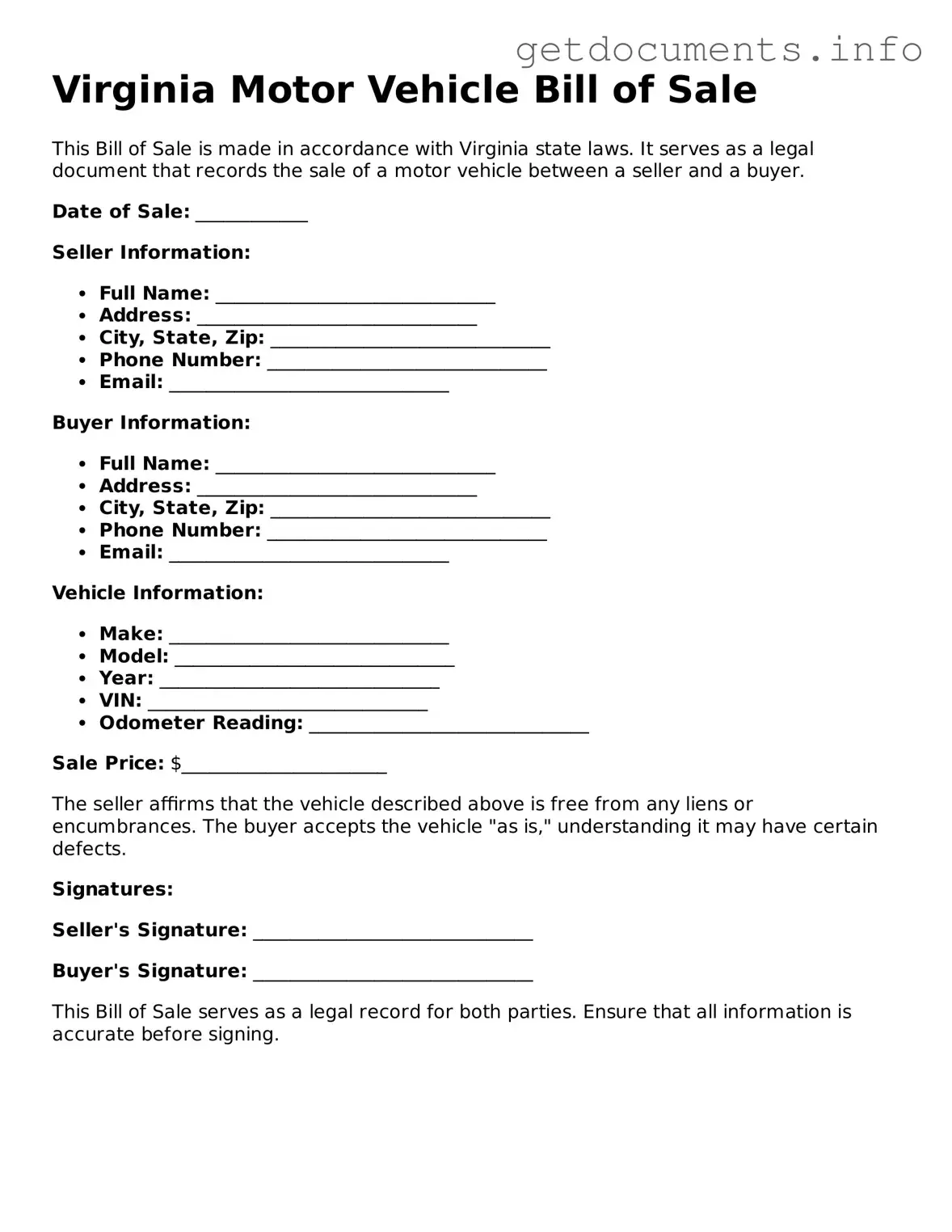Free Motor Vehicle Bill of Sale Template for Virginia
The Virginia Motor Vehicle Bill of Sale form is a legal document that records the transfer of ownership of a vehicle from one party to another. This form serves as proof of the transaction and includes important details such as the vehicle's description, sale price, and the names of both the buyer and seller. To ensure a smooth transfer of ownership, it is essential to fill out this form accurately and completely.
Ready to complete your transaction? Click the button below to fill out the form.
Access Motor Vehicle Bill of Sale Editor

Free Motor Vehicle Bill of Sale Template for Virginia
Access Motor Vehicle Bill of Sale Editor
Got places to be? Complete the form fast
Fill out Motor Vehicle Bill of Sale online and avoid printing or scanning.
Access Motor Vehicle Bill of Sale Editor
or
⇩ PDF File
